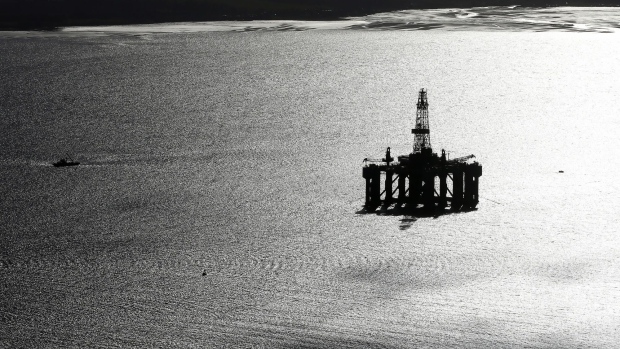Sep 5, 2023
UK North Sea Output to Be Hit by Windfall Tax, EnQuest CEO Says
, Bloomberg News

(Bloomberg) -- The UK’s North Sea windfall tax is curbing spending in the region, inevitably leading to less oil and gas being produced, according to EnQuest Plc.
“If we don’t continue investing in the sector, the sector will undoubtedly decline,” Amjad Bseisu, chief executive officer of the North Sea-focused explorer, said in an interview on Tuesday. The increased tax rate in what was already a high-cost basin “is clearly a challenge,” he said.
UK oil and gas producers have seen their earnings crimped by the introduction last year of the Energy Profits Levy, which imposes an additional 35% tax surcharge on oil and gas produced in the country. The measure targeted the windfall earned on the back of soaring energy prices, but smaller players in the industry have complained that it penalizes them more heavily than Big Oil, which makes most of its money outside of the UK.
Shares of EnQuest fell as much as 17% in London on Tuesday after the company posted a first-half loss that it blamed on the EPL.
EnQuest took part in the government’s review of the Energy Security Investment Mechanism, which allows for the EPL to be phased out if oil and gas prices fall below certain thresholds for a sustained period.
“We’re hopeful it will restore confidence, but I do think that something has to be done at pace,” Bseisu said. “Money is fungible and capital is fungible and it doesn’t need to be invested in the UK.”
Oslo-based consultant Rystad Energy A/S expects oil and gas investment in the UK this year to rise slightly to about £5.5 billion ($6.9 billion), from £4.6 billion in 2022. However, that would still be about 75% below the peak of £18 billion reached 2013, the consultant said.
In contrast, investment in the Norwegian oil and gas industry is expected to reach a record-high of NOK225 billion ($21 billion) this year, after the government introduced a temporary tax regime during the coronavirus pandemic in order to incentivize spending, according to Rystad.
©2023 Bloomberg L.P.






